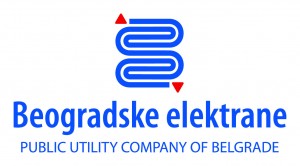| JKP ‘Beogradske elektrane’ Belgrade, Serbia   PDF Summary PDF Summary |
Before heating season 2009/10. PUC “Beogradske elektrane” burns up to 10.000 tons of coal per year. Besides high emissions of SO2, CO, NOx and particulates there is a serious problem of ground contamination with coal and ash during transport, handling and storage. This is another important reason for introduction biomass in coal fuelled boilers and thus further decreasing the consumption of coal and introduction of renewable. The JKP “Beogradske elektrane” has performed investigations on possible utilization of solid biomass in existing boilers, originally fuelled with coal. The main goal of these investigations was to analyze possibilities of utilization of biomass without modifying the existing boilers.The extensive results obtained during the research proved to be very useful for better understanding of performance and operation of coal fuelled boilers when using solid biomass and confirm that the change from coal to briquettes and pellets can be done the way the Utility Company of Belgrade planned. Following the current heating technology concepts and the high price of fossil fuels, the JKP “Beogradske elektrane” has paid particular attention to energy efficiency increase and the environmental protection and global warming issues by investigating possibilities to introduce renewable for heat production in Belgrade.During the last 30 years period JKP “Beogradske elektrane” has closed over 1000 coal or oil fuelled local heating units and connected the consumers to district heating systems operating on natural gas, thus substantially improving quality of life in Belgrade by reduction of emissions of pollutants and CO2 emissions. Four year experience resulted in following important findings:• Wood briquettes and pellets can be utilized as a substitute for coal for some types of boilers and continuous fuel feeding systems without modifications of boiler sub-systems, except possible minor adjustments for control and operation of boiler. • The achieved thermal powers when using either coal or biomass do not differ. • There are substantial improvements when using biomass in what concerns emissions of gaseous pollutants, ash, particulates and CO2. • Dimensions of briquettes and pellets to be used depend on boiler and grate types and their geometry. • Storage and handling of briquettes and pellets is much simpler and environmentally friendlier than storage and handling of coal. • No investment is needed! |
